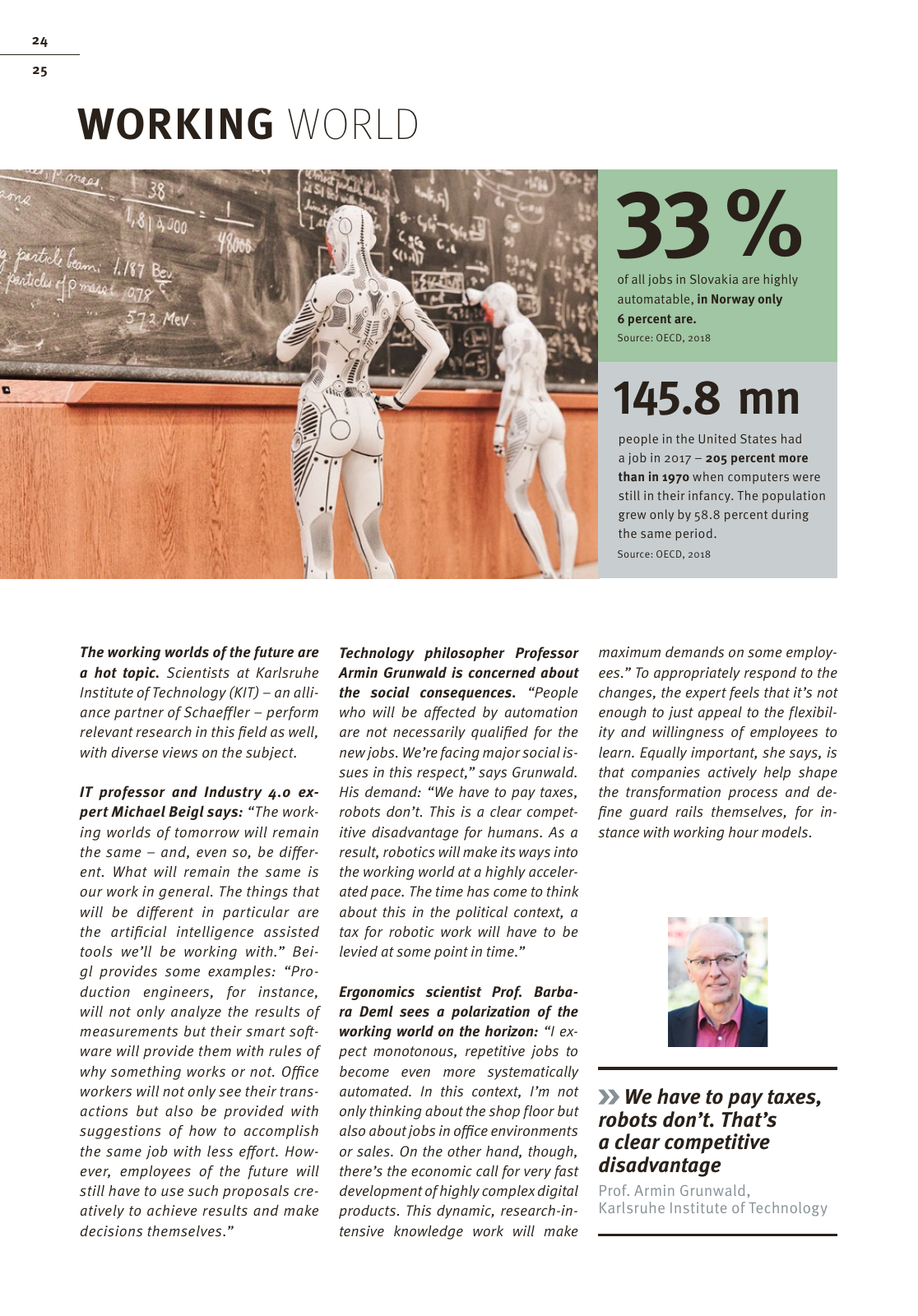The working worlds of the future are a hot topic Scientists at Karlsruhe Institute of Technology KIT an alli ance partner of Schaeffler perform relevant research in this field as well with diverse views on the subject IT professor and Industry 4 0 ex pert Michael Beigl says The work ing worlds of tomorrow will remain the same and even so be differ ent What will remain the same is our work in general The things that will be different in particular are the artificial intelligence assisted tools we ll be working with Bei gl provides some examples Pro duction engineers for instance will not only analyze the results of measurements but their smart soft ware will provide them with rules of why something works or not Office workers will not only see their trans actions but also be provided with suggestions of how to accomplish the same job with less effort How ever employees of the future will still have to use such proposals cre atively to achieve results and make decisions themselves Technology philosopher Professor Armin Grunwald is concerned about the social consequences People who will be affected by automation are not necessarily qualified for the new jobs We re facing major social is sues in this respect says Grunwald His demand We have to pay taxes robots don t This is a clear compet itive disadvantage for humans As a result robotics will make its ways into the working world at a highly acceler ated pace The time has come to think about this in the political context a tax for robotic work will have to be levied at some point in time Ergonomics scientist Prof Barba ra Deml sees a polarization of the working world on the horizon I ex pect monotonous repetitive jobs to become even more systematically automated In this context I m not only thinking about the shop floor but also about jobs in office environments or sales On the other hand though there s the economic call for very fast development of highly complex digital products This dynamic research in tensive knowledge work will make WORKING WORLD maximum demands on some employ ees To appropriately respond to the changes the expert feels that it s not enough to just appeal to the flexibil ity and willingness of employees to learn Equally important she says is that companies actively help shape the transformation process and de fine guard rails themselves for in stance with working hour models of all jobs in Slovakia are highly automatable in Norway only 6 percent are Source OECD 2018 33 people in the United States had a job in 2017 205 percent more than in 1970 when computers were still in their infancy The population grew only by 58 8 percent during the same period Source OECD 2018 145 8 mn We have to pay taxes robots don t That s a clear competitive disadvantage Prof Armin Grunwald Karlsruhe Institute of Technology 24 25

Hinweis: Dies ist eine maschinenlesbare No-Flash Ansicht.
Klicken Sie hier um zur Online-Version zu gelangen.
Klicken Sie hier um zur Online-Version zu gelangen.